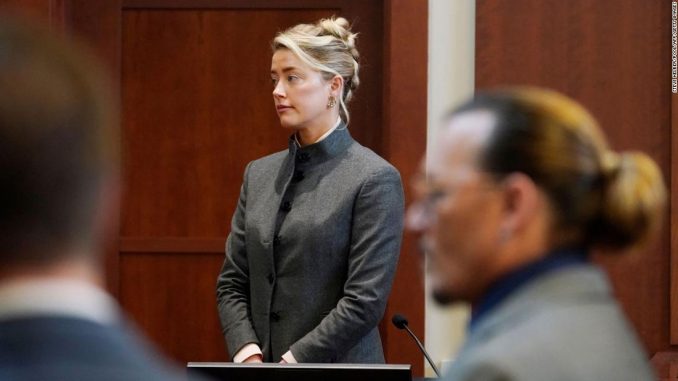Advertisement

Nonetheless, many online declared Depp the clear “winner” before the jury even began deliberations, but the details that surfaced along with the public nature of the case resulted in mixed messages for teens and young adults as they watched he unfolded on social media.
I worry about the internalized messages that can result from a case showing relational toxicity and normalized violence within a relationship. While the case centered on defamation lawsuits, the content shared (and shared and shared) focused on a volatile relationship that has garnered widespread attention on social media apps. The nuances of victimization are difficult to discern from short clips overlaid with catchy tunes.
Teens don’t know how to handle complicated relationships without support and learning to set healthy boundaries. Parents can use this opportunity to talk to tweens and teens about dating violence and how to build healthy dating relationships.
Create a safe space
Creating a safe space to talk to teenagers is helpful in understanding the dynamics of what’s going on in their daily lives outside of the home. In fact, teenagers tell me they crave adult conversations but worry about judgment and response.
But don’t try to solve their problems right away – Trenk warns that if you immediately switch to answer mode, the conversation will end.
Parents become a trusted resource for their children when they slow down and take the time to listen, validate emotions, empathize with complex feelings, and share accurate information and resources to help their teens process. “Acknowledge the strong feelings first so you can talk through the nuances of intimate relationships,” Trenk said.
Talk about healthy relationships
It’s a mistake to assume that teenagers know everything they need to know about developing healthy relationships by watching role models. You need specific guidance.
Trenk suggests encouraging teens to explore their values and how they relate to relationships. “One question you can ask is how are you moving toward a healthy connection that aligns with your values?”
Healthy relationships are built on trust, honesty, and respect. Start with these values, but ask your teen to fill them in. Together you can create a word cloud of values that, when used in intimate relationships, build powerful connections.
Know the warning signs
Teen relationships can feel both exciting and overwhelming. It’s easy to get lost in the highs, but miss some early warning signs of stress in a relationship.
Intense jealousy and arguments, controlling behavior, constant monitoring on Snap Maps or tracking apps, excessive communication, inappropriate criticism, and asking a partner to keep secrets about behavior within the relationship are signs of an unhealthy relationship.
Investigate issues surrounding power
“When teenagers are striving to connect, exploiting power doesn’t help,” Trenk said. “Unequally distributed current leads to shutdown.”
Talk to your teens about power imbalances that can arise around relationships. In a healthy relationship, power is shared equally. Each person maintains their individuality and feels free to express themselves because their relationship is built on mutual respect. This is an example of positive power.
Power differentials, on the other hand, can occur when one partner uses manipulation or violence to disempower the other and gain control of the relationship. This development can be gradual in teenage relationships.
teach assertiveness
All teens need to learn to set healthy boundaries and assert their feelings and needs in a relationship. A boundary is a clear line your teen draws to maintain a healthy relationship and can include physical, emotional, sexual, financial, and time boundaries. Help your teen find healthy boundaries and share them with a partner.
Enforcing boundaries can be difficult for teenagers, who often face pressure from a variety of sources. Practice at home by role-playing with your teen or encouraging them to practice in front of the mirror.
get help
If you notice behavioral changes in your teen, including mood swings, eating and sleeping habits, difficulties at school, loss of interest in usual daily activities, avoidance of friends, irritability, or highly reactive behaviors, seek help for your teen. While open and honest communication using supportive language is a good start, you don’t have to go through this alone. A licensed psychotherapist can help you and your teen through this difficult time.

